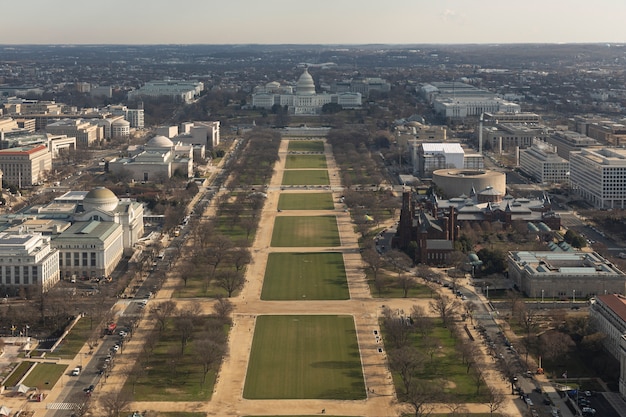Campaign Finance Reform: Leveling the Playing Field in 2025?

Campaign finance reform aims to create a more equitable electoral landscape by regulating the sources and uses of money in political campaigns, with new regulations potentially impacting the fairness and competitiveness of the 2025 elections.
Will new regulations on campaign finance reform level the playing field in the 2025 elections? The influence of money in politics is a long-standing concern, and efforts to regulate it continue to evolve.
Understanding Campaign Finance Reform
Campaign finance reform refers to the set of laws and regulations designed to control and influence how money is raised and spent in political campaigns. The goal of these reforms is to promote fairness, transparency, and integrity in the electoral process.
These regulations often address various aspects of campaign finance, including:
Contribution Limits
One of the most common aspects of campaign finance reform is setting limits on how much money individuals and organizations can contribute to political campaigns. These limits are intended to prevent wealthy donors from wielding disproportionate influence over candidates and elected officials.
Disclosure Requirements
Another key component of campaign finance reform is the implementation of disclosure requirements. These requirements mandate that campaigns and political organizations publicly disclose the sources of their funding and how they are spending their money. This transparency is meant to hold campaigns accountable and inform voters about who is supporting which candidates.
- Promoting fairness and equal access to the political process.
- Reducing the potential for corruption or undue influence by wealthy donors.
- Ensuring transparency and accountability in campaign finance.
- Encouraging broader participation in the political process by average citizens.
The importance of comprehending campaign finance reform lies in its direct impact on the democratic process. Regulations designed to level the playing field can affect who runs for office, how campaigns are conducted, and ultimately, who wins elections.
Historical Context of Campaign Finance Regulations
The regulation of campaign finance in the United States has a long and complex history, dating back to the late 19th and early 20th centuries. Early efforts to regulate money in politics were often driven by concerns about corruption and the undue influence of wealthy individuals and corporations.
Several key pieces of legislation have shaped the landscape of campaign finance regulations over the years:
The Tillman Act of 1907
One of the first significant federal laws regulating campaign finance was the Tillman Act of 1907, which prohibited corporations and national banks from contributing directly to federal campaigns. The act was a response to growing concerns about the influence of big business in politics.
The Federal Election Campaign Act (FECA) of 1971
The FECA was a comprehensive overhaul of campaign finance laws, establishing disclosure requirements for campaign contributions and expenditures, as well as setting limits on individual and organizational contributions. The Act was amended in 1974 to create the Federal Election Commission (FEC) to enforce campaign finance laws.

These historical regulations and their impacts have been extensively debated and challenged in courts. Landmark Supreme Court cases, such as Buckley v. Valeo (1976) and Citizens United v. Federal Election Commission (2010), have significantly altered the legal framework of campaign finance regulation.
The Citizens United decision, in particular, had far-reaching consequences, as it struck down restrictions on independent expenditures by corporations and unions, leading to the rise of Super PACs and other outside spending groups.
Key Provisions of Current Campaign Finance Law
Campaign finance law in the United States is governed by a complex web of federal and state regulations. Understanding the key provisions of these laws is essential for anyone seeking to engage in political activity.
Here are some of the key provisions of current campaign finance law:
Contribution Limits
Federal law sets limits on how much individuals and organizations can contribute to political campaigns, parties, and committees. These limits vary depending on the type of election and the recipient of the contribution. For example, individual contributions to federal candidates are capped at a certain amount per election cycle.
Disclosure Requirements
Campaigns and political organizations are required to disclose detailed information about their donors and expenditures. This includes the names, addresses, and occupations of individuals who contribute over a certain threshold, as well as the purpose and amount of each expenditure.
- Ensuring that candidates have sufficient resources to run competitive campaigns.
- Providing a level playing field for challengers against incumbents.
- Preventing corruption and undue influence by wealthy donors.
- Promoting transparency and accountability in the electoral process.
These provisions are designed to balance the need to regulate the flow of money in politics with the First Amendment rights of free speech and association.
Proposed Changes for the 2025 Elections
Looking ahead to the 2025 elections, there are several proposed changes to campaign finance regulations that could significantly impact the political landscape. These proposed changes are driven by ongoing debates about fairness, transparency, and the role of money in politics.
Some of the proposed changes include:
Increased Disclosure Requirements
One proposal would require greater disclosure of the sources of funding for political advertisements, including those run by Super PACs and other outside spending groups. Proponents argue that this would increase transparency and allow voters to better understand who is behind the messages they are seeing.
Restrictions on Dark Money
Another proposal aims to restrict the use of “dark money” in elections – funds spent by politically active nonprofits that do not disclose their donors. This would prevent wealthy individuals and corporations from anonymously influencing elections through these organizations.

These proposed changes could significantly alter the dynamics of the 2025 elections, potentially reducing the influence of wealthy donors and outside spending groups, while increasing transparency and accountability in campaign finance.
Potential Impacts of New Regulations
The potential impacts of new campaign finance regulations on the 2025 elections are far-reaching and multifaceted. These regulations could affect everything from fundraising strategies to campaign messaging and voter turnout.
Here are some of the potential impacts of new regulations:
Leveling the Playing Field
One of the primary goals of campaign finance reform is to level the playing field between candidates and parties. By limiting contributions and restricting outside spending, new regulations could help reduce the advantages enjoyed by wealthy incumbents and well-funded special interests.
Increased Transparency
Increased disclosure requirements could make it easier for voters to track the flow of money in politics and hold campaigns accountable for their funding sources. This could lead to greater trust in the electoral process and more informed decision-making by voters.
- Smaller donors and grassroots movements may have a larger impact.
- Campaigns may need to rely more on volunteer efforts and community organizing.
- Candidates may need to engage more directly with voters through town halls and public forums.
- The focus may shift away from negative attack ads and towards more substantive policy debates.
It’s important to note that these impacts are not guaranteed, and the actual effects of new regulations will depend on a variety of factors, including how they are implemented and enforced, and how campaigns and political organizations respond to them.
Arguments For and Against Reform
Campaign finance reform is a contentious issue, with strong arguments on both sides. Proponents of reform argue that it is necessary to protect the integrity of the democratic process and prevent corruption, while opponents argue that it infringes on First Amendment rights and can stifle political speech.
Here are some of the key arguments for and against reform:
Arguments in Favor of Reform
Proponents of campaign finance reform argue that it is essential for promoting fairness and equal access to the political process. They contend that without regulations, wealthy individuals and corporations can use their financial resources to exert undue influence over candidates and elected officials, drowning out the voices of average citizens.
Arguments Against Reform
Opponents of campaign finance reform argue that it violates the First Amendment rights of free speech and association. They contend that individuals and organizations have a right to spend money to support the candidates and causes they believe in, and that government restrictions on this spending are unconstitutional.
Ultimately, the debate over campaign finance reform reflects fundamental disagreements about the role of money in politics and the balance between free speech rights and the need for a fair and equitable electoral process.
| Key Point | Brief Description |
|---|---|
| 💰 Contribution Limits | Caps on individual and organizational donations. |
| 📊 Disclosure Requirements | Mandatory reporting of donors and expenditures. |
| 🚫 Dark Money | Efforts to regulate anonymous political funding. |
| ⚖️ Level Playing Field | Aim to reduce advantages of wealthy incumbents. |
Frequently Asked Questions
▼
Campaign finance reform involves laws regulating the raising and spending of money in political campaigns to promote fairness and transparency. It addresses contribution limits, disclosure, and independent expenditures.
▼
It is deemed vital to minimize corruption risks, encourage a more equitable election environment, and boost transparency in campaign financing, thus raising public trust and civic engagement.
▼
Current laws include contribution limits for individuals and organizations, strict disclosure requirements on donations and spending, and regulations around independent expenditures by PACs and Super PACs.
▼
New rules could equalize opportunities, increase transparency by revealing funding sources, encourage participation from smaller donors, and shift campaign strategies from negative ads to policy debates.
▼
Supporters say it reduces corruption, while critics claim it violates free speech. The debate centers on balancing the need for electoral integrity with constitutional rights of expression.
Conclusion
The debate over campaign finance reform is complex and ongoing. As we look towards the 2025 elections, new regulations could significantly reshape the political landscape, but their ultimate impact will depend on how they are implemented and enforced, and how campaigns and political organizations adapt to them. Staying informed and engaged in this debate is crucial for ensuring a fair and transparent electoral process.
